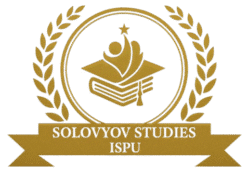Solovyov Studies ISPU prioritize publication ethics and strive to foster the development of high-quality scientific content throughout the publication process. We are committed to upholding the principles outlined by COPE (Committee on Publication Ethics) and ICMJE (International Committee of Medical Journal Editors) guidelines. In the event of suspected duplication or substantial overlap in submitted manuscripts, we follow these guidelines to ensure appropriate handling and resolution. By adhering to these ethical standards, we aim to maintain the integrity and credibility of our publications.
The Solovyov Studies ISPU ensures that all articles published in its Solovyov Studies undergo a rigorous editorial process to uphold the quality of scientific content. This process includes stringent measures to avoid plagiarism, redundant submissions, multiple publications, as well as the fabrication and falsification of data.
Plagiarism
Authors are expected to create original content for their manuscripts and should refrain from copy the work of other authors without proper citation. Plagiarism includes the use of previously published or unpublished material from other authors without appropriate acknowledgment. If a manuscript is found to contain plagiarized content, whether it has been published or not, it will be considered a case of plagiarism.
Duplicate Publication and Data Falsification
Duplicate publication refers to the act of publishing a paper that significantly overlaps with a previously published work in terms of hypotheses, data, discussion, and conclusions, without providing clear and visible acknowledgement of the prior publication. It is important to avoid duplicating content without proper referencing to ensure the integrity and originality of scientific publications.
Data farming involves the creation of false or fictitious data or results, which are then recorded or reported without actually conducting the study or experiment. On the other hand, data falsification refers to the manipulation of research materials, equipment, or processes, as well as the alteration or selective omission/deletion/suppression of conflicting data without valid scientific or statistical justification. Both practices undermine the integrity of research and are considered serious ethical violations.
Equivalent Submission
Authors are advised not to submit the same manuscript to multiple journals simultaneously for peer review. Duplicate submission refers to manuscripts that have either been previously published or are currently under review elsewhere. Such duplicate submissions will not be considered for review and may be rejected.
Improper composition
Composition credits should be attributed to individuals who have made significant contributions to the conception and design of the research, acquisition of data, analysis and interpretation of data, drafting the article, critically revising it for important intellectual content, and providing final approval for publication. Contributors who do not meet the criteria for authorship should be acknowledged for their contribution without being listed as authors.
